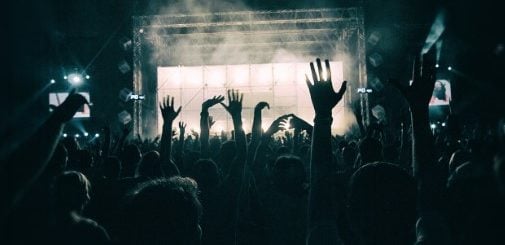You’ve Got Everything Now by The Smiths Lyrics Meaning – Unpicking the Enigma of Adolescent Yearnings
Lyrics
I was right and you were wrong
Back at the old grey school
I would win and you would lose
But you’ve got everything now
You’ve got everything now
And what a terrible mess I’ve made of my life
Oh, what a mess I’ve made of my life
No, I’ve never had a job
Because I’ve never wanted one
I’ve seen you smile
But I’ve never really heard you laugh
So who is rich and who is poor?
I cannot say…oh
You are your mother’s only son
And you’re a desperate one
Oh…
But I don’t want a lover
I just want to be seen…oh…in the back of your car
A friendship sadly lost?
Well this is true…and yet, it’s false
Oh…
But did I ever tell you, by the way?
I never did like your face
But you’ve got everything now
You’ve got everything now
And what a terrible mess I’ve made of my life
Oh, what a mess I’ve made of my life
No, I’ve never had a job
Because I’m too shy
I’ve seen you smile
But I’ve never really heard you laugh
So who is rich and who is poor ?
I cannot say…oh
Oh…
You are your mother’s only son
And you’re a desperate one
Oh…
But I don’t want a lover
I just want to be tied… oh…to the back of your car
To the back of your car
To the back of your car
To the back of your car
To the back of your car
To the back of your car
Oh…
In the melancholy dance of Morrissey’s eloquent verses, The Smiths’ ‘You’ve Got Everything Now’ is a wistful ode to the pangs of youthful disenchantment. It’s a track that beams with the shimmering jangle of Johnny Marr and the poetic musings of its frontman, all the while narrating a tale of haves and have-nots, of envy and regret.
As we dissect the song’s layers, one finds a tapestry woven with themes of societal expectations, personal ambition, and the throbbing ache of unrealized dreams. Morrissey, in his quintessential manner, embodies a character that treads the fine line between self-pity and incisive social commentary, making ‘You’ve Got Everything Now’ a perpetual fountain of discourse for listeners and critics alike.
The Schoolyard: A Battlefield of Winners and Losers
The opening lines of ‘You’ve Got Everything Now’ cast us back into the stark shadows of the ‘old grey school’, where life was simpler, divided squarely into victories and defeats. Morrissey’s retrospective gaze is less about nostalgia than it is about the realization that the roles once played—winner and loser—have been inverted in the grand play of life.
This demarcation speaks volumes about the societal ladder we’re encouraged to climb from the earliest of ages, setting the stage for a life of perennial competition. It’s here in the crude recollections of past triumphs that the seeds of present discontent seem to have been sown.
Envy and Adulation: The Trajectory of Wanting
The repeated proclamation, ‘You’ve got everything now,’ pulses with a blend of envy and irony that is tightly wrapped around the core of the narrative. The ‘terrible mess’ the narrator claims to have made of their life becomes a powerful contrast to the presumed perfection seen from the outside.
It raises the curtain on our propensity to juxtapose our behind-the-scenes with everyone else’s highlight reel, a relatable affliction in this era of curated social media presences. Yet, the assertion feels less like an accusation and more like a confession—a simultaneous cry for recognition and a nod to the hollow nature of material success.
The Dissonance of Wealth: A Riches to Rags Philosophy
In the questioning ‘So who is rich and who is poor?’, Morrissey dives into the gaping chasm between material wealth and emotional richness. He maps an internal landscape where the conquests of emotional nuance overpower the cold arithmetic of a bank balance.
The poetic musing plunges into the very heart of human desire, questioning the value we place on the tangible and the enduring quest for what is felt rather than what can be held. It is a socioeconomic conundrum packaged in the guise of lyrical contemplation.
The Paradox of Intimacy: Seeking Connection in Isolation
Morrissey’s disdain for love’s embrace in favor of being ‘seen… in the back of your car’ unfolds yet another layer of the song’s intricate narrative. This rejection of deep, binding ties for a fleeting moment of acknowledgment underscores the paradoxical longing for intimacy within the throes of solitude.
The lyric serves as an allegory for the modern condition; the wanting of connection without the vulnerability it necessitates. It’s the embodiment of an ego bristling for recognition, while simultaneously recoiling from the very thing that makes recognition meaningful: human connection.
A Friendship Forsaken: The Elegy of Lost Relations
In what can be seen as the song’s emotional climax, Morrissey hints at the wreckage of a ‘friendship sadly lost’, pointing to the cost of the personal journeys we take. It’s a moment that punctuates the song with the realization of a collateral damage—a relationship sacrificed on the altar of life’s meandering paths.
This ‘true…and yet, it’s false’ dichotomy serves as a haunting reminder of the selective memories and cognitive dissonances we grapple with. We mourn the loss of what might not have been all that glorious to begin with, a complex riddle wrapped in the melodrama of the past.







